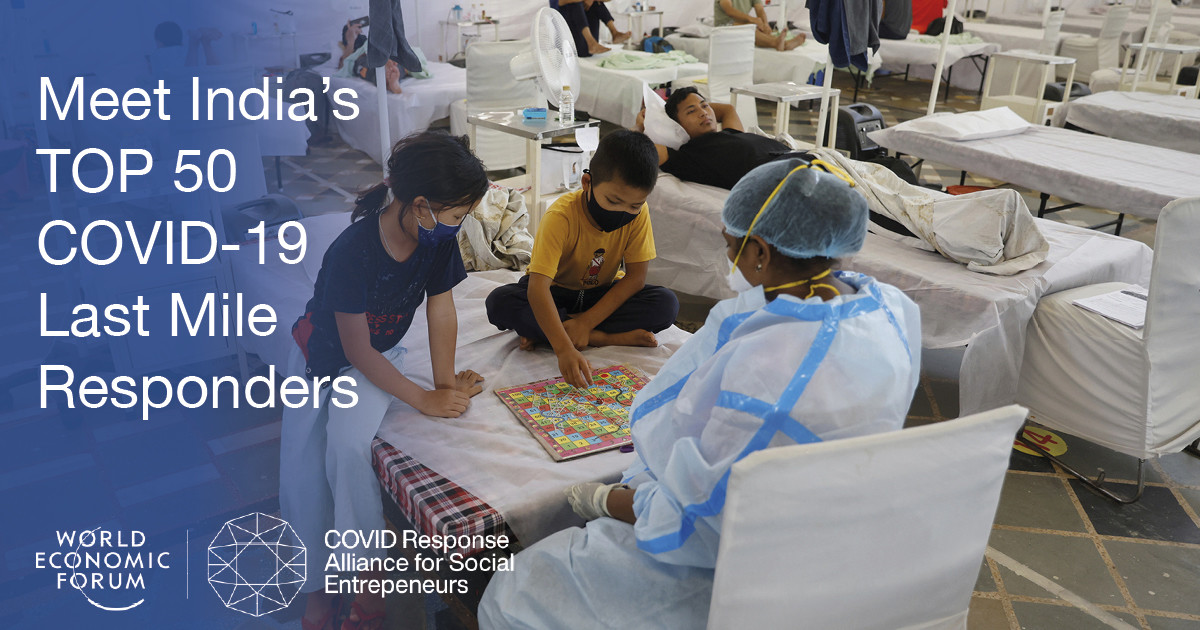COVID-19: What you need to know about the coronavirus pandemic on 29 October

Singapore is converting a Formula One building into a hospital as COVID-19 cases rise.
Image: REUTERS/Edgar Su
Explore and monitor how COVID-19 is affecting economies, industries and global issues
Stay up to date:
COVID-19
- This daily round-up brings you a selection of the latest news and updates on the COVID-19 coronavirus pandemic, as well as tips and tools to help you stay informed and protected.
- Top stories: Less than 10% of African countries set to hit vaccination target; $23.4 billion sought to tackle COVID-19 in poorer countries; New COVID-19 curbs in Russia, Ukraine.
1. How COVID-19 is affecting the globe
Confirmed cases of COVID-19 have passed 245.5 million globally, according to Johns Hopkins University. The number of confirmed deaths stands at more than 4.98 million. More than 6.94 billion vaccination doses have been administered globally, according to Our World in Data.
Pfizer and BioNTech have agreed a contract to supply 50 million COVID-19 vaccines for US children.
Malaysia has also announced it will buy the Pfizer/BioNTech COVID-19 vaccine for children aged 5 to 11.
New COVID-19 cases in Britain are down nearly 10% in the past week, with 39,842 new confirmed cases reported yesterday.
It comes as the UK announces will it will remove the final seven countries on its COVID-19 travel 'red list'. New arrivals from these countries - Colombia, Dominican Republic, Ecuador, Haiti, Panama, Peru and Venezuela - are currently required to spend 10 days in hotel quarantine.
COVID-19 restrictions have been tightened in the Ukrainian capital of Kiev. It comes as the country reported new record daily COVID-19 cases - 26,071.
From Monday, some COVID-19 restrictions will be eased in South Korea, marking the start of its plan to 'live with COVID-19'.
One hundred former presidents, prime ministers and government ministers have written to the G20 urging them to agree on how to transfer surplus COVID-19 vaccines to low-income countries.
COVID-19 vaccines have arrived at Australia's Casey research station in Antarctica, authorities said on Friday, allowing researchers to be inoculated before they return home.
Moscow has introduced its strictest COVID-19 curbs in more than a year as nationwide cases and deaths hit new highs.

2. $23.4 billion sought to tackle COVID-19 in poorer countries
The World Health Organization (WHO) and other aid groups have appealed to leaders of the world's biggest 20 economies to fund a $23.4 billion plan to bring COVID-19 vaccines, tests and drugs to the world's poorest countries in the next 12 months.
WHO Director-General Tedros Adhanom Ghebreyesus said the Group of 20, whose leaders are meeting in Rome at the weekend, had the political and financial power needed to end the pandemic by funding the plan, which he said could save five million lives.
"The request is for $23.4 billion. That's a fair amount of money, but if you compare with the damage also done to global economy by the pandemic it is not really that much," Carl Bildt, WHO Special Envoy to the ACT-Accelerator, told reporters earlier.
"I hope and urge that the G20 will make a commitment to end the pandemic," Norwegian Prime Minister Jonas Gahr Stoere, whose country co-chairs the fund-raising effort, told the media briefing.
Accept our marketing cookies to access this content.
These cookies are currently disabled in your browser.
3. Less than 10% of African countries set to hit vaccination target
The WHO has warned that less than 10% of African countries are set to hit the year-end target of fully vaccinating 40% of their populations unless efforts are made to accelerate the pace.
Just five African countries are on course to hit the goal, with just three - Seychelles, Mauritius and Morocco - having already done so. Only Tunisia and Cabo Verde are set to join them.
It's not just vaccine dose supplies that are a concern, though. UNICEF has reported an imminent shortfall of up to 2.2 billion auto-disable syringes for COVID-19 vaccination and routine immunization in 2022.
“The looming threat of a vaccine commodities crisis hangs over the continent. Early next year COVID-19 vaccines will start pouring into Africa, but a scarcity of syringes could paralyze progress. Drastic measures must be taken to boost syringe production, fast. Countless African lives depend on it,” said Dr Matshidiso Moeti, WHO Regional Director for Africa.
India’s leading COVID-19 last-mile responders
Don't miss any update on this topic
Create a free account and access your personalized content collection with our latest publications and analyses.
License and Republishing
World Economic Forum articles may be republished in accordance with the Creative Commons Attribution-NonCommercial-NoDerivatives 4.0 International Public License, and in accordance with our Terms of Use.
The views expressed in this article are those of the author alone and not the World Economic Forum.
Forum Stories newsletter
Bringing you weekly curated insights and analysis on the global issues that matter.
More on Health and Healthcare SystemsSee all
Gaurav Ghewade
April 23, 2025
Naoko Tochibayashi and Mizuho Ota
April 7, 2025
Charlotte Ersboll and Kusum Kali Pal
April 7, 2025





